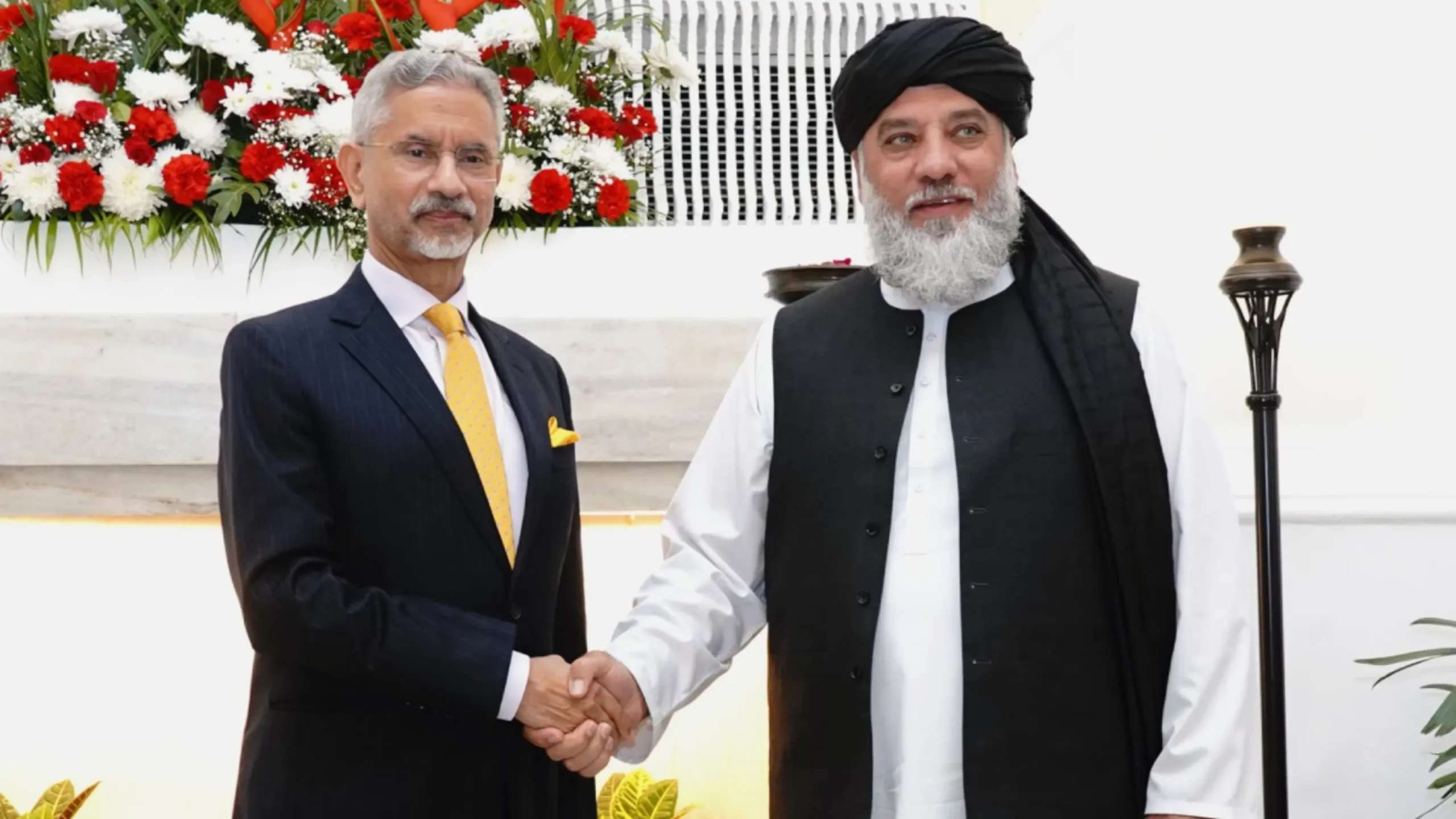In a major development, India and Afghanistan are swiftly expanding economic relations, announcing a series of new initiatives this week designed to circumvent Pakistan’s closed borders and explore new markets. During a five-day visit that commenced Wednesday, Afghanistan’s Minister of Industry and Commerce, Alhaj Nooruddin Azizi, conducted talks with External Affairs Minister S. Jaishankar and Minister of State for Commerce Jitin Prasada. The two nations agreed to establish trade attaché offices in New Delhi and Kabul, reactivate a dormant joint trade working group, and create a new joint chamber of commerce.
“Vast opportunities for Indian investors in Afghanistan, and we have created an enabling environment to come and invest in Afghanistan,” Azizi told Indian business leaders at PHD Chamber of Commerce and Industry (PHDCCI). “It will be a good opportunity to explore opportunities in the mining, industry, agriculture sector. Huge opportunities in Afghanistan.” He specifically invited investment in mining, pharmaceuticals, rice milling, and textiles. “We would like to develop Afghanistan and make Afghan industries self-sufficient,” he added. “Any trader, industrialist who wants to come, we will provide full support. We will give all possible facilities in Afghanistan.”
In a notable gesture, Azizi extended an invitation to Afghanistan’s Sikh and Hindu communities to return to the country and assist in rebuilding it. “We invite them to come to Afghanistan, and they have to come, we fully support it,” he said.
The visit, the second by Afghanistan’s Islamic Emirate government to India in a month, occurs as Kabul pivots dramatically away from Pakistan. Relations have deteriorated after Pakistan launched an unprovoked attack on Kabul. Since then the Torkham border crossing remains closed. That has prompted Afghanistan to increase trade with Iran and India. Trade with Iran via the Chabahar port, developed with Indian assistance, has surged past $1.6 billion in the past six months, eclipsing volumes with Pakistan.
“Since the Pakistan border is closed, our seniors ordered us to look for new routes,” Azizi said. “Chabahar port should continue. We want the waiver for the Chabahar port project to continue. One side Pakistan closes the border, other side Americans put sanctions on the new route. That is why the sanction waiver should continue.” Among the concrete measures announced: the imminent launch of dedicated air cargo corridors linking Kabul with Delhi and Amritsar. Starting immediately, Afghan exports, primarily pomegranates, almonds, and saffron, will fly to Delhi for $1 per kilogram on Ariana Afghan Airlines cargo flights, while Indian imports to Afghanistan will cost just 80 cents per kilogram.
Other initiatives include establishing dry ports in Nimroz province, regular shipping lines from Chabahar, simplified customs at India’s Nhava Sheva port, faster business visas for Afghan traders, and joint investments in pharmaceuticals, cold storage, fruit processing, industrial parks, and small-enterprise centers. Both sides also pledged more trade exhibitions and business-to-business meetings.
The Afghan minister was particularly interested in Indian pharmaceutical investment, especially after Kabul announced earlier this month that medicines imported from Pakistan would no longer be cleared after a three-month grace period. “We would like investment in the pharma sector,” Azizi said. “Those who are exporting medicines to Afghanistan, they are welcomed. Those who would like to invest in Afghanistan, in the pharma sector, want to present in hospitals—we are at your disposal and full support.”
Azizi repeatedly referenced India’s humanitarian assistance after the 2021 takeover, when Washington froze billions in Afghan central-bank assets. “India sent wheat, other things when the US froze the funds of Afghanistan,” he said. “This is brotherhood.” The warming ties mark a pragmatic shift for New Delhi, which has cautiously expanded engagement with the Islamic Emirate Government in Kabul without granting formal recognition. India recently upgraded its Kabul mission from a small technical team to a full embassy presence. A visit by Afghanistan’s health minister is expected next month.
